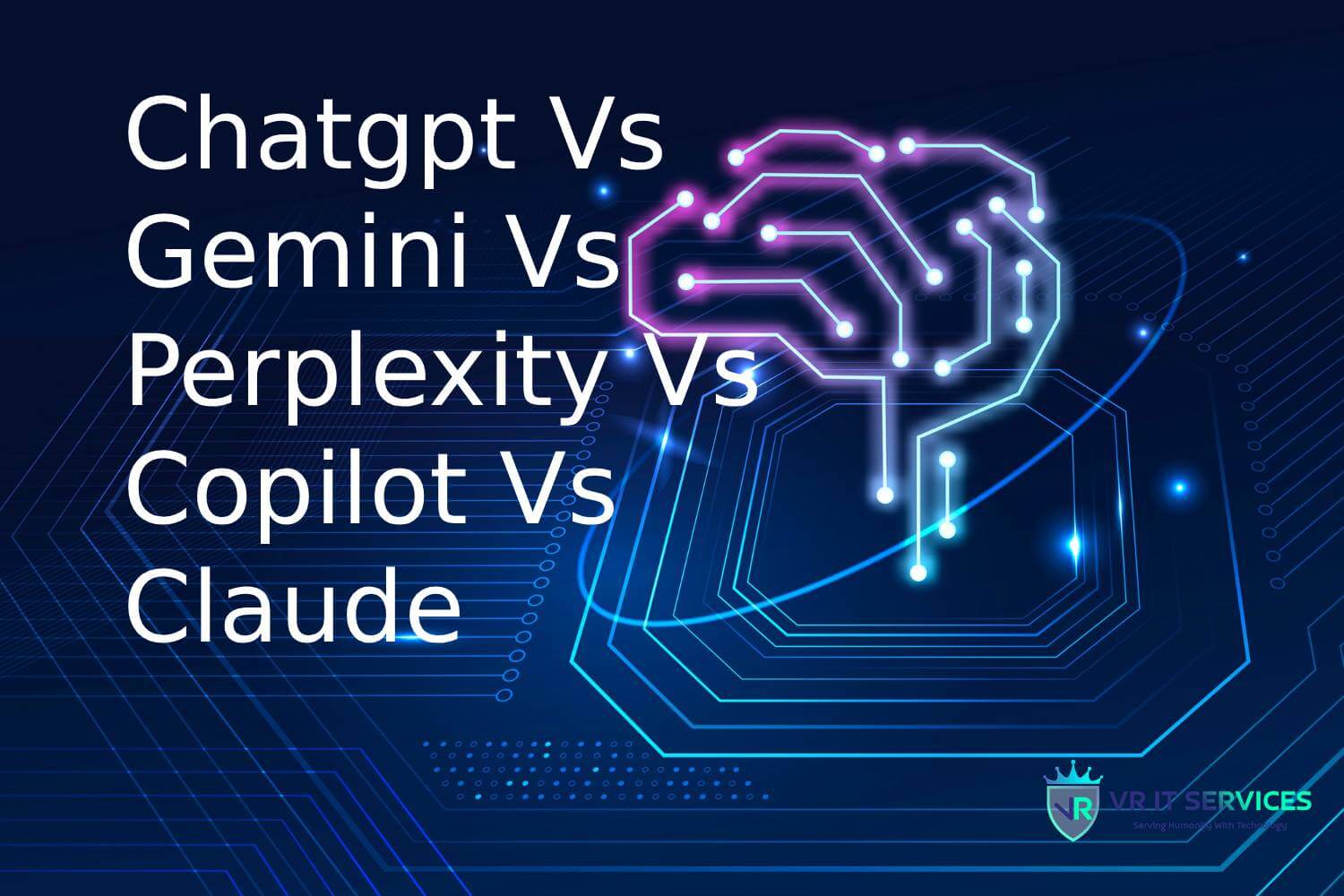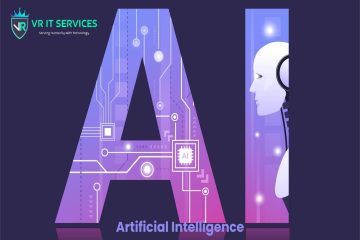Artificial Intelligence (AI) has rapidly evolved from a futuristic concept into an essential part of our daily digital lives. The rise of AI assistants like ChatGPT, Gemini (Google’s AI), Perplexity, Copilot, and Claude has transformed how we work, learn, and communicate. But with so many powerful AI chat bots available, one burning question remains — which one is truly the smartest?
In this article, we’ll dive deep into the brains behind today’s top AI tools, compare their capabilities, explore their unique strengths, and help you decide which AI assistant best fits your needs.
The Rise of AI Assistants: A Revolution in Artificial Intelligence
Over the last few years, Artificial Intelligence has shifted from narrow automation tools to intelligent systems capable of reasoning, creativity, and problem-solving. AI assistants have become the new digital partners — helping with research, writing, coding, marketing, design, and even emotional support.
The market for AI chat bots has exploded since OpenAI released ChatGPT, prompting tech giants like Google, Anthropic, and Microsoft to develop their own advanced systems. Each AI assistant has its own personality, strengths, and limitations — shaped by the technology and philosophy of its creators.
Let’s break down what makes each contender unique.
1. ChatGPT – The Conversational Powerhouse
Developed by: OpenAI
Backed by: Microsoft
Powered by: GPT-4 architecture
ChatGPT is arguably the most popular AI assistant in the world. Built on OpenAI’s Generative Pre-trained Transformer (GPT) models, ChatGPT has redefined how humans interact with AI. Its ability to generate coherent, human-like responses, write code, assist with content creation, and even hold philosophical discussions has made it the go-to choice for millions.

Key Strengths
- Exceptional conversational abilities and contextual understanding
- Supports multiple industries — from education to business and software development
- Integrated with Microsoft tools (Word, Excel, Teams, and Copilot)
- Access to web browsing and plugins for real-time data
Limitations
- Sometimes overconfident with incorrect answers (hallucinations)
- Restricted access to newer data (in some versions)
- Requires a subscription for GPT-4 access
2. Gemini – Google’s AI with Search Intelligence
Developed by: Google DeepMind
Previously known as: Bard
Gemini represents Google’s vision for a Decentralized AI ecosystem where advanced reasoning meets vast access to real-time information. It’s tightly integrated with Google Search, YouTube, and Workspace, making it a natural fit for users within Google’s ecosystem.
Key Strengths
- Real-time access to Google Search and data
- Superior at understanding context in long, complex questions
- Excellent for summarizing articles, documents, and research papers
- Multimodal capability — processes text, images, and voice
Limitations
- Still catching up to ChatGPT in creativity and emotional tone
- Less effective at long-form content writing
- Availability and features vary by region
3. Perplexity – The AI Search Engine
Developed by: Perplexity AI
Focus: Answer-based search and knowledge retrieval
Perplexity stands out as an AI assistant that merges conversational AI with real-time search accuracy. Instead of generating text purely from pre-trained models, it references verified sources and provides citation-based answers — making it highly reliable for research and factual queries.
Key Strengths
- Real-time web access with sources
- Minimal hallucinations compared to ChatGPT
- Ideal for students, journalists, and analysts
- Clear and concise responses
Limitations
- Limited creativity — feels more like a smart search engine
- Narrower use cases beyond research and Q&A
- Less personalization in tone and context
4. Copilot – The Productivity Powerhouse
Developed by: Microsoft (powered by OpenAI)
Integrated into: Microsoft 365 Suite
Copilot is not just an AI chat bot — it’s a work companion. Integrated into tools like Word, Excel, PowerPoint, and Outlook, Copilot helps automate daily tasks, write emails, summarize meetings, and even generate data insights.
Key Strengths
- Deep integration with productivity apps
- Uses ChatGPT’s GPT-4 engine under the hood
- Great for professionals and teams in corporate environments
- Enhances workflow efficiency and reduces manual effort
Limitations
- Requires Microsoft 365 subscription
- Less conversational than standalone ChatGPT
- Limited to Microsoft’s ecosystem
5. Claude – The Ethical AI Assistant
Developed by: Anthropic
Model: Claude 3 series
Claude is designed around constitutional AI — an ethical approach where the model follows clear, human-aligned principles. This makes it safer, more responsible, and often more nuanced in complex discussions. Claude is popular among researchers, writers, and developers who value depth and balance.
Key Strengths
- Deep understanding of context and nuance
- Focuses on safety and ethical decision-making
- Excellent for analyzing documents and writing tasks
- Handles long conversations better than most AIs
Limitations
- Lacks real-time web access in some versions
- Smaller integration ecosystem compared to competitors
AI Assistant Comparison Table
| Feature / Model | ChatGPT | Gemini (Google) | Perplexity | Copilot (Microsoft) | Claude (Anthropic) |
|---|---|---|---|---|---|
| Best For | Writing, coding, ideation | Research, search, context | Factual queries, learning | Productivity, office work | Ethical AI, deep analysis |
| Web Access | Available (Pro) | Integrated with Google | Real-time | Limited | Partial |
| Creativity | ★★★★★ | ★★★★☆ | ★★☆☆☆ | ★★★★☆ | ★★★★★ |
| Accuracy | ★★★★☆ | ★★★★★ | ★★★★★ | ★★★★☆ | ★★★★★ |
| Integration | Plugins, APIs | Google Apps | Web Search | Microsoft 365 | APIs, Slack |
| Ease of Use | High | Moderate | High | High | High |
| Price | Free / Paid | Free | Free / Paid | Subscription | Free / Paid |
AI Assistants in Real Life: Who Uses What?
Different types of users prefer different AI chat bots based on their professional needs and workflow habits:
| User Type | Preferred AI Assistant | Why |
|---|---|---|
| Writers & Creators | ChatGPT or Claude | Creativity and tone control |
| Researchers & Students | Perplexity or Gemini | Fact-checked insights |
| Developers & Tech Teams | Copilot or ChatGPT | Code generation, debugging |
| Corporate Professionals | Copilot | Workflow integration |
| Ethics & Policy Experts | Claude | Responsible AI behavior |
Beyond Conversation: The Next Frontier in Artificial Intelligence
Each of these AI assistants represents a unique philosophy in the evolution of Artificial Intelligence. ChatGPT focuses on creative reasoning, Gemini leans on data precision, Perplexity ensures accuracy, Copilot maximizes productivity, and Claude aims for safety and ethics.
But the future of AI lies not just in text — but in multimodal intelligence. The next generation of AI chat bots will process video, voice, and emotion, blurring the lines between human and digital collaboration.
The Emerging Trends in AI Assistants
- Contextual Memory: Future AIs will remember past conversations and preferences
- Emotionally Intelligent AI: Better empathy and tone adaptation
- Cross-Platform Integration: Seamless use across devices and ecosystems
- Decentralized AI Networks: Open, secure AI without dependence on a single provider
Expert Insights: How to Choose Your AI Assistant
Choosing the right AI assistant depends on your goals. If you need creative support, ChatGPT and Claude are unbeatable. For data-backed accuracy, Perplexity and Gemini shine. For corporate productivity, Copilot is unmatched.
Tips for Making the Right Choice:
- Define your primary use case — creativity, research, coding, or business.
- Consider ecosystem compatibility — are you a Microsoft or Google user?
- Check privacy and security settings — especially if working with sensitive data.
- Test different models — most platforms offer free trials or limited use.
Final Verdict: Who’s the Smartest AI?
Each AI assistant excels in its own way, so “smartest” depends on how you define intelligence:
| Category | Winner |
|---|---|
| Best Conversationalist | ChatGPT |
| Most Accurate Researcher | Perplexity |
| Most Integrated Ecosystem | Copilot |
| Most Ethical and Balanced | Claude |
| Best Data-Driven Reasoning | Gemini |
Overall Winner: ChatGPT (for now)
While ChatGPT remains the most versatile and widely adopted AI chat bot, the competition is fierce. Gemini’s access to Google’s data, Perplexity’s real-time search accuracy, Copilot’s integration with workflows, and Claude’s ethical reasoning make each a standout in their own domain.
The real test of Artificial Intelligence isn’t who’s the smartest — it’s who’s the most useful in empowering human creativity, productivity, and discovery.



